Narrative in history
History teachers, academics and policy makers have often expressed concerns about the value accorded to narrative in school history, suggesting that an over-emphasis on certain concepts and processes – most obviously, causation and the critical evaluation of sources – has tended to obscure the importance of being able to put together a clear story. Constructing an effective narrative account, it has been argued, is not only an essential and demanding task in its own right and one that is fundamental to historians’ work; it is also the foundation on which other kinds of historical knowledge are built, and should therefore be more highly prized by teachers and within public examinations. Read more
Sort by:
Date (Newest first) | Title A-Z
Show:
All |
Articles |
Podcasts |
Multipage Articles
-

'A lot of guess work goes on': Children's understanding of historical accounts
ArticleClick to view -

'If Jesus Christ were amongst them, they would deceive Him'
ArticleClick to view -

'Which was more important Sir, ordinary people getting electricity or the rise of Hitler?' Using Ethel and Ernest with Year 9
ArticleClick to view -

A noisy classroom is a thinking classroom: speaking and listening in Year 7 history
ArticleClick to view -

Absence and myopia in A-level coursework
ArticleClick to view -

An Investigation into Finding Effective Ways of Presenting a Written Source to Students
ArticleClick to view -

Anything but brief: Year 8 students encounter the longue durée
ArticleClick to view -
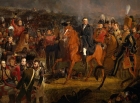
Assessing the Battle of Waterloo in the classroom
ArticleClick to view -

Beyond slavery
ArticleClick to view -

Changing thinking about cause
ArticleClick to view -
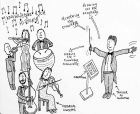
Conducting the orchestra to allow our students to hear the symphony
ArticleClick to view -
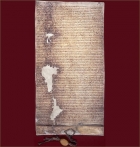
Cunning Plan 159: Putting the people into Magna Carta
ArticleClick to view -

Cunning Plan 174: creating a narrative of the interwar years
ArticleClick to view -
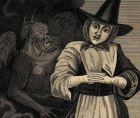
Cunning Plan 183: Teaching a broader Britain, 1625–1714
ArticleClick to view -

Curating the imagined past: world building in the history curriculum
ArticleClick to view -
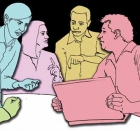
Debates: Narratives - what matters most in school history education?
ArticleClick to view -

Exploring diversity at GCSE
ArticleClick to view -

Film: What's the wisdom on... Enquiry questions (Part 1)
ArticleClick to view -

Film: What's the wisdom on... Enquiry questions (Part 2)
ArticleClick to view -

Getting personal: making effective use of historical fiction in the history classroom.
ArticleClick to view

